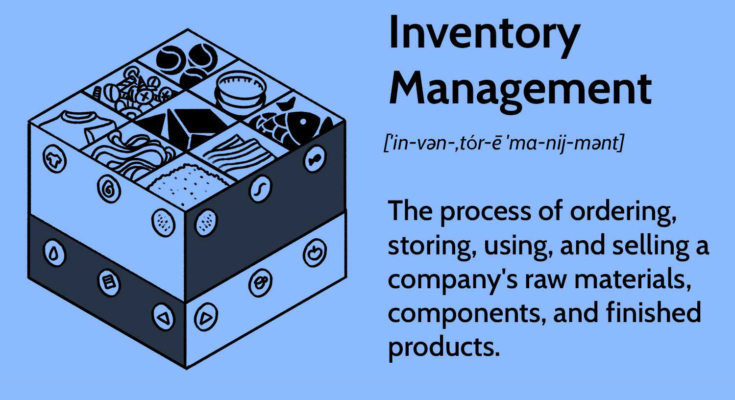
Comprehending Inventory Control
We shall describe inventory management and discuss its application in the business sector in this section. We’ll look at the reasons why putting into practise efficient inventory management techniques is essential for companies of all sizes and sectors.
Categories of Stock
Explore the different categories of inventory, such as completed goods, work-in-progress, and raw materials. Describe how, depending on their operations and industry, many businesses may have varied inventory demands.
Costs of Inventory
Talk about the expenses related to inventory management, including expenditures for ordering, holding, and shortages. Describe how these expenses can affect a business’s profitability and stress the need for a sensible balance.
Methods of Inventory Control
Examine several inventory regulator techniques, such as the ABC study, the Just-In-Time (JIT) system, and the Financial Order Quantity (EOQ) perfect. List the benefits and problems of each method, along with the states in which they work best.
Technology in the Management of Inventory
Discuss how technology, such as list management software (IMS) and radio-frequency papers (RFID), may streamline processes and shrink errors. Technology is indispensable to inventory organization for companies of all sizes and areas. Optimising success, cutting incidentals, and raising purchaser happiness all depend on effective inventory organization..
Forecasting Inventory
Describe the significance of precise demand forecasting for inventory control. Talk about methods for enhancing forecast accuracy, such as trend analysis, seasonality, and predictive analytics. Forecasting inventory is a critical aspect of inventory management for businesses. Accurate inventory forecasting helps ensure that a company has the right amount of products on hand to meet customer demand while minimizing carrying costs and the risk of stockouts.
Ratio of Inventory Turnover
Explain what the inventory turnover ratio means and how a company’s inventory management efficiency is reflected in it. Describe the effects that a high or low turnover ratio may have on profitability.
Security Stock
Talk about the idea of safety stock and how it helps to avoid stockouts and unhappy customers. Stress the importance of determining safety stock levels in light of demand fluctuation.
Supplier Connections
Emphasise how crucial it is to establish trusting relationships with suppliers. Describe how improved lead times and cost might improve inventory management through a dependable supplier network. Supplier connections refer to the relationships and interactions between a company and its suppliers. These connections are an essential part of the supply chain management process, as suppliers play a crucial role in providing the raw materials, components, or services necessary for a company’s operations.
Auditing Inventory
Describe the importance of routine inventory audits in locating irregularities and averting theft and improper handling. Talk about the best ways to carry out precise audits.
E-commerce Inventory Management
Discuss the unique issues and approaches to inventory management that the e-commerce sector faces, such as adjusting to large SKU counts and cyclical variations.
Sustainable Development and Inventory Management
Examine the ways in which eco-friendly inventory management techniques can minimise waste, protect the environment, and support corporate social responsibility initiatives.
Example Research
Give instances from the real world of businesses that have successfully incorporated inventory management techniques to raise productivity and profitability.
Difficulties with Inventory Control
Talk about typical inventory management problems such supply chain interruptions, demand volatility, and technology constraints. Offer remedies and ways to reduce the problem.
Conclusion
List the article’s main lessons, highlighting the significance of efficient inventory management for maximising corporate productivity and securing long-term success.By using these titles, you may improve the SEO of your item while also manufacture it informal for visitors to navigate the substantial. A company’s ability to manage its inventory efficiently is essential to its success, and doing so can boost your business’s success and sustainability.
More learn about project manager

